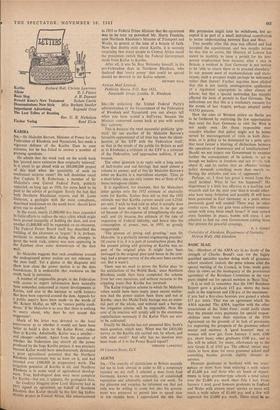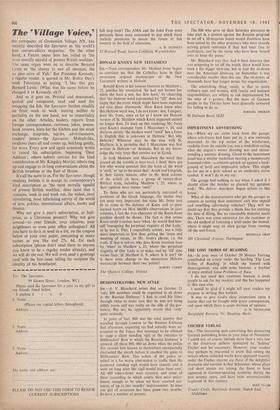BASIC SLAG
SIR,—Members of the AMA are in no doubt of the strength of Charles Brand's case for the highly qualified specialist teacher doing work of grammar school standard. Indeed, the press release after the special meeting of the Council, in June, made quite clear its views on the inadequacy of the provisional agreement of the. Burnham Committee in the very parts singled out for special mention in 'Basic Slag.'
It is as well to remember that the 1945 Burnham Report gave a graduate £15 p.a. above the basic scale at the minimum and £30 pa. at the maximum: if you had a first-class honours you gained a whole £15 p.a. extra. That was an agreement which the AMA rejected. The AMA, together with the other associations of the 'Joint Four,' could justly claim that the present extra payments for special respon- sibilities stem from their rejection of the 1954 Agreement on the grounds of its lack of provisions for improving the prospects of the grammar school master and mistress. A 'good honours' man or woman will now get, from January 1 next, £200 p.a. above basic, other graduates £100 p.a., and to this will be added, for many, allowances up to the new Grade E of £545 p.a. The official 'union' may claim to have done for most grammar school staff something besides provide slightly cheaper in- surance.
Honours graduates in Scotland with ten years' service or more have been enjoying a scale salary of £1,600 p.a. and those who are heads of depart- ments in large grammar-type schools a total salary over the £2,000 p.a. mark since July 1 last. From January 1 next, good honours graduates in England and Wales with sixteen years' service or more will reach a scale salary of £1,460 p.a. and a few will approach the £2,000 p.a. mark. There must be no full stop here The AMA and the Joint Four must persuade those most concerned to pay much more realistic premiums to insure the future of this country in the field of education.











































 Previous page
Previous page